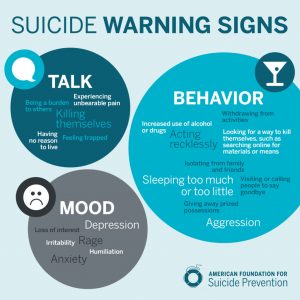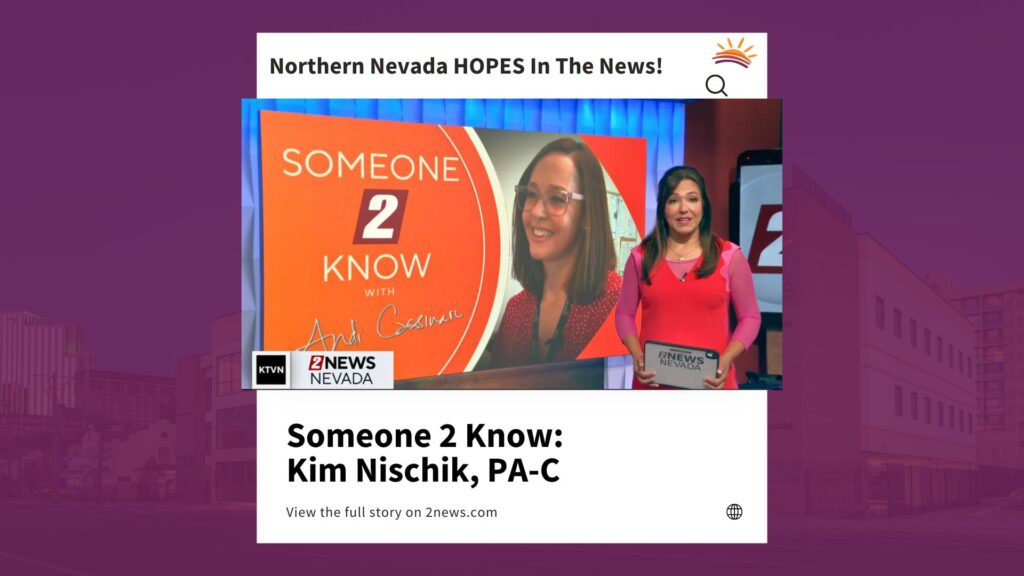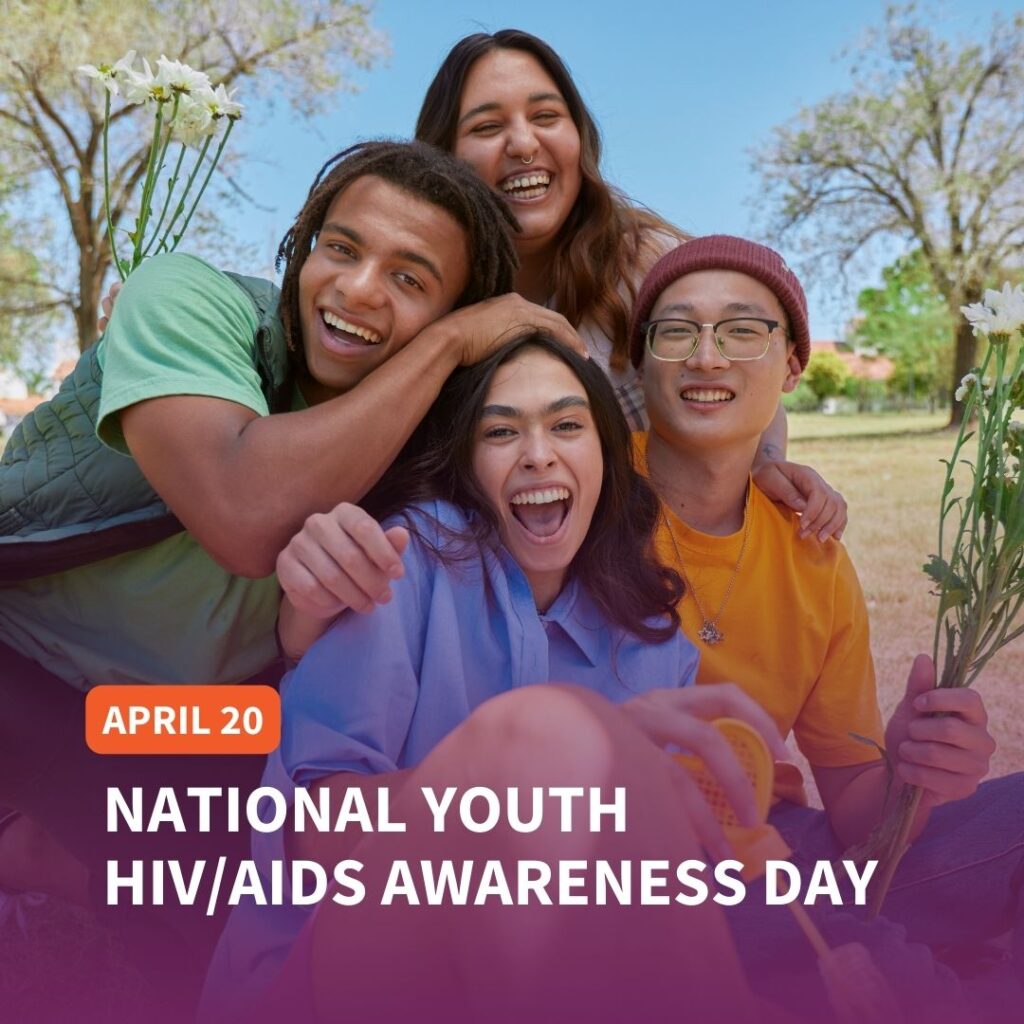Suicide affects people of all ages, races, ethnicities, and socioeconomic statuses. Open discussion about suicide can help prevent suicide by empowering individuals, families, and communities while raising awareness.
HOPES Suicide Awareness Flyer.
Suicide Warning Signs
Being informed about the warning signs of suicide can help to support those around us who may be thinking about suicide. Here are some suicide warning signs.
Talk:
- Experiencing unbearable pain.
- Being a burden to others.
- Killing themselves.
- Having no reason to live.
- Feeling trapped.
Behavior:
- Withdrawing from activities.
- Increased use of alcohol or drugs.
- Acting recklessly.
- Looking for a way to kill themselves, such as searching online for materials or means.
- Isolation from family and friends.
- Sleeping too much or too little.
- Visiting or calling people to say goodbye.
- Giving away prized possessions.
- Aggression
Mood:
- Depression
- Loss of interest
- Rage
- Irritability
- Humilation
- Anxiety
It’s difficult to talk to someone who you think is suicidal, and it’s hard to know what to do to help a loved one who is suffering. Taking action is always a good choice, and asking about suicidal thoughts or feelings won’t push someone to harm themselves. Letting someone talk about their feelings may reduce the risk of acting on suicidal feelings and can help.
According to the Mayo Clinic, the first step is to find out whether the person is in danger of acting on suicidal feelings. Be sensitive, but ask direct questions:
- How are you coping with what’s been happening in your life?
- Do you ever feel like just giving up?
- Are you thinking about dying?
- Are you thinking about hurting yourself?
- Are you thinking about suicide?
- Have you ever thought about suicide before, or tried to harm yourself before?
- Have you thought about how or when you’d do it?
- Do you have access to weapons or things that can be used as weapons to harm yourself?
You don’t have to do this alone!
If you are feeling suicidal or know someone who is at risk of suicide, get help from a trained professional as quickly as possible.
If you are having any sort of crisis, you can call or text the Crisis Support Service of Nevada to get help and guidance. Call 1-800-273-8255. Or text “CARE” to 839863. Or go to the CSSNV website at https://cssnv.org/.
Veterans Suicide Hotline
1-800-273-8255 and press 1
or text 838255
Nevada Suicide Statistics1
- More people die from suicide in Nevada than from homicide and motor vehicle accident deaths combined.
- Suicide is the leading cause of death for Nevadans ages 12-19 & the 2nd leading cause of death for ages 20-44. Nevada has the 2nd highest elder suicide rate in the country.
- There is HOPE! Suicide is not inevitable for anyone. By starting the conversation, providing support, and directing help to those who need it, we can prevent suicides and save lives.2
1Nevada Coalition for Suicide Prevention. (2017). Facts About Suicide.
2National Suicide Prevention Lifeline. (2019). We Can All Prevent Suicide.




